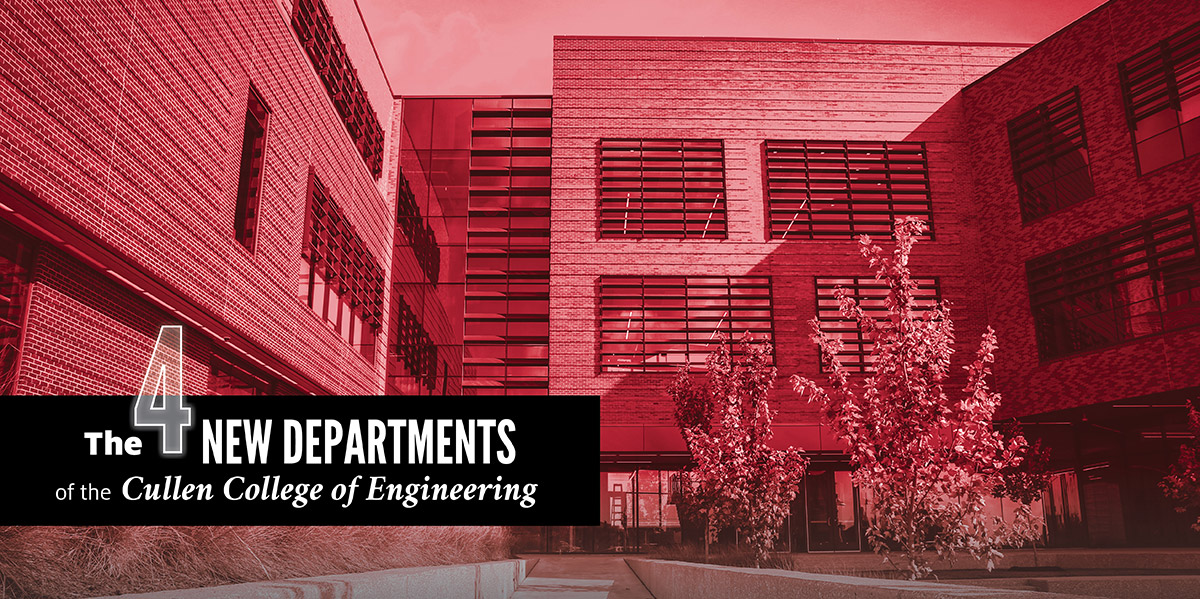
By Stephen Greenwell
Four new departments — Human Development and Consumer Sciences, Engineering Technology, Construction Management, and Information Science Technology — will be at the Cullen College of Engineering starting with the Fall 2023 semester, thanks to the merger with the College of Technology.
These departments will expand the current offerings of the College, as well as allow for synergy when it comes to research and networking opportunities with industry, for students and faculty. Here's a look at each of the departments.
HUMAN DEVELOPMENT AND CONSUMER SCIENCES
A researcher can make a great new finding in their field, or innovate on an existing product. But ultimately, that discovery might languish or go nowhere if its just done in the secrecy of a lab and pushed minimally afterward.
Barbara Stewart, the department chairwoman for Human Development and Consumer Sciences, points to this as one of the major reasons to be excited about the merger between the colleges.
“The programs in Human Development and Consumer Sciences offer real value to engineers,” she said. “The content seems very different, but when you think about what engineers do, they need to find application in the real world. That's how Human Development and Consumer Sciences can be of use to engineers.”
The department offers degrees focusing on Human Resource Development, and Retailing and Consumer Sciences. Human Resource Development allows students to become relationship-focused, problem solvers and key players that assess, design and deliver solutions for training and performance management.
The Retailing and Consumer Science degree offers diverse opportunities for students to develop into successful retail professionals. Students are prepared for a broad range of careers including merchandising, technology entrepreneurship, retailing, e-tailing, sales, customer service, marketing, and public relations.
Foresight graduates assist industry leaders to anticipate significant changes ahead and to influence those changes to achieve long-term goals. Professional forecasting methods emphasize systemic and transformational change to describe alternative plausible and preferable futures.
Stewart noted that while shopping habits have changed drastically thanks to the Internet, only 20 to 25 percent of retailing is done online. Companies might offer an online storefront, but this marketplace still requires employees and a system to hum.
“It's an exciting time because the workplace is being redesigned,” she said. “The future is not hocus pocus. It's not crystal ball magic. It's looking at the past and building out from there, so strategic decisions can be made.”
CONSTRUCTION MANAGEMENT
Starting with the Fall 2022 semester, the U.S. Department of Education and the U.S. Department of Homeland Security recognized something evident to anyone actually in the matter — that degree programs like construction management, and supply chain and logistics technology, fell under the umbrella of STEM.
The bachelor of science in construction management provides the ultimate balance of construction, business and engineering courses. The program emphasizes the skills that are highly sought in today and tomorrow’s job markets. Graduates of the program are prepared to enter relevant fields as project managers, field operations engineers, construction estimators and construction planners.
The supply chain and logistics technology major offers a broad array of career paths with global opportunities. There are four academic tracks students can pursue:
- Operations — knowledge for a domestic and international career in sales, marketing and operations.
- Systems Management — a technology oriented focus with a strong analytical approach designed to achieve optimum solutions to complex supply chain/logistics problems.
- Global Logistics — in-depth analysis in international logistics and its role in the supply chain with a focus on maritime attributes and activities.
- Directed Emphasis — designed for community college transfer students whose colleges have an articulation agreement with the University of Houston.
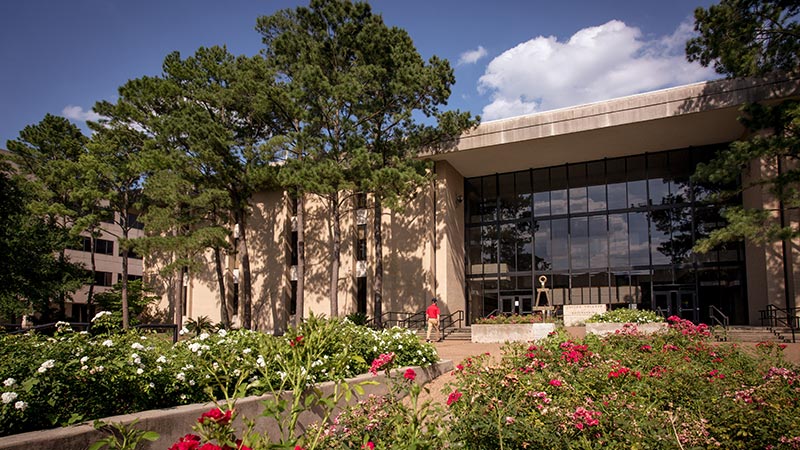

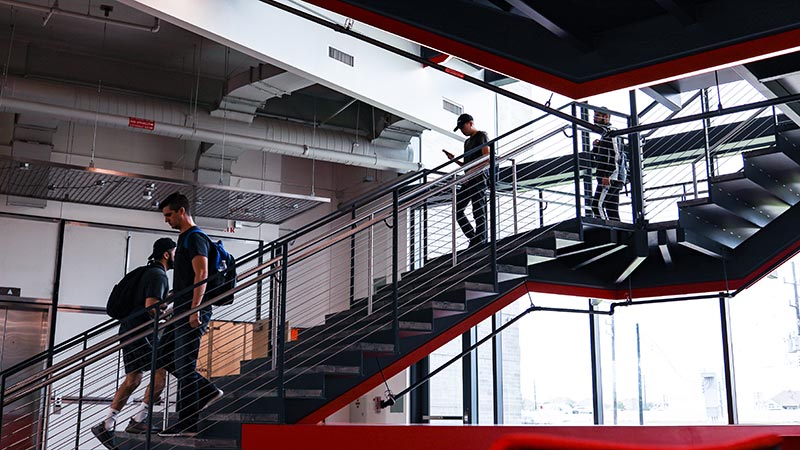
ENGINEERING TECHNOLOGY
Anyone who's worked an industry job knows that there can be a substantial difference between the scientific principles of a textbook vs. the conditions on a factory floor or in a busy research lab. Fatima Merchant, the department chairperson of Engineering Technology, knows that as well as anyone. She worked as a lead research engineer for about a decade before joining UH as a faculty member.
The Engineering Technology department offers undergraduate degrees in biotechnology, computer engineering technology, electrical power engineering technology, and mechanical engineering technology. The department also offers a master's degree in Engineering Technology in the following areas: biotechnology, computational health informatics, network communications, and mechanical engineering technology.
Merchant sees the access to the available Ph.D. programs in engineering and the natural research connections that can be made between college departments as strong, positive factors for the merger.
“We have the opportunity to initiate projects at both the undergraduate and graduate levels, fostering interdisciplinary collaboration across departments, which I believe would yield great outcomes," she said. "Bringing together students with well-founded theoretical skills alongside those with extensive hands-on experience could be immensely beneficial.”
Echoing remarks from the leadership of the newly combined college, Merchant saw the merger as a good opportunity to take the best practices of each entity in order to maximize student success.
“An essential starting point is to focus on student success metrics," she said. "Our objectives undoubtedly include boosting enrollment at both the bachelor's and master's levels, with a primary emphasis on elevating the four and six-year graduation rates. Moreover, leveraging existing research partnerships and forging new collaborations among engineering and technology division faculty, with a focus on securing team-based interdisciplinary grants tailored to tackle complex challenges, substantial advantages can be reaped in terms of funded research and scientific advancement.”
INFORMATION SCIENCE TECHNOLOGY
The Department of Information Science Technology is producing new ideas and knowledge within the fields of information, logistics, graphic communications and leadership technology. It is educating the highly capable and diverse technology leaders for the state of Texas, the nation and the global community. Degrees are offered in four fields.
The Computer Information Systems (CIS) program addresses the demands of a dynamic and integral part of business and industry — the Information Systems environment. The program challenges students to extend their reach into small to medium-size organizations and develop real-world application solutions.
The Digital Media program prepares leaders for the multi-faceted and ever-changing profession. Students gain competencies in various graphic-related technologies as well as a broad background in leadership and supervision in one of the largest industries in the United States. Graduates discover a broad range of options for a career in digital and video production, publishing, content marketing, social media and social networking, E-commerce, web design and other related fields.
The Master of Science degree in Cybersecurity is a hands-on program designed specifically to prepare individuals for responsible leadership roles in the technology-based and information-based workplaces. Designed for working professionals, this two-year program connects theory and experiential learning to equip technology professionals with the skills to assess the security needs of information systems and then to lead and manage the implementation and maintenance of the recommended security solutions.
Technology Leadership and Innovation Management is the business discipline for developing and managing organizations and teams to solve problems and achieve results. The TLIM degree focuses on building the foundational leadership skills in technology subject matter expertise, communication, goal management, asset alignment, team organization and project supervision.
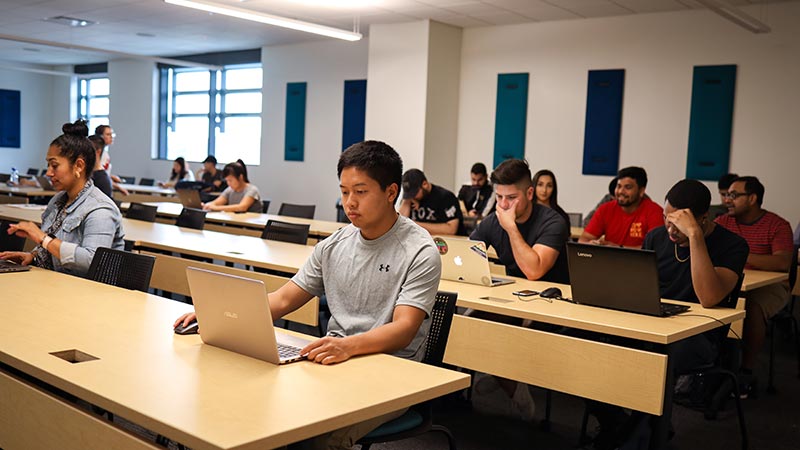

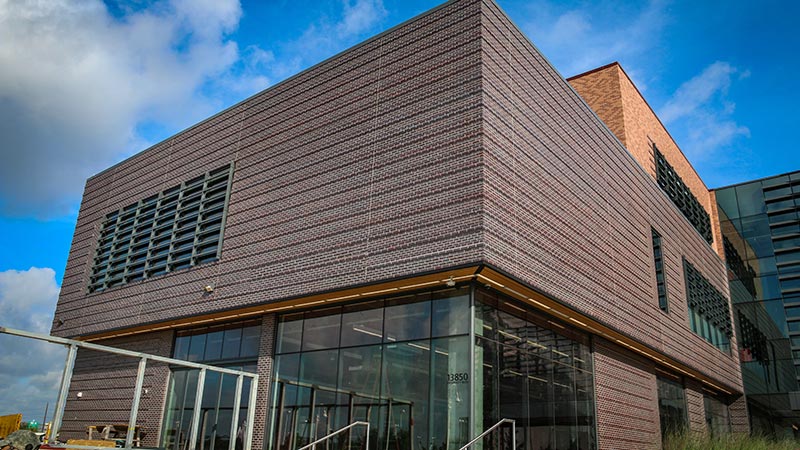
With these four new departments, the Cullen College of Engineering will expand by more than 5,200 students — an additional 1,000 undergraduate and 150 graduate students earning their degrees each year. The combined unit will offer new degree options for students, as well as opportunities for faculty members to conduct collaborative research, while maintaining the high standards set by both colleges.